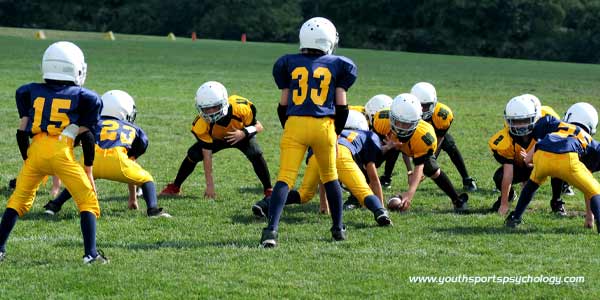
How to Help Perfectionist Young Athletes
Many top athletes say that they’re perfectionists. When they say this, sports kids may assume that perfectionism will help them attain their full potential.
While perfectionism has advantages, it can actually prevent young athletes from reaching their potential. While perfectionists show up for practice and work hard, they often are their own worst enemies during competition.
“John” was a typical perfectionist with all the classic signs.
When he was young, his parents imposed high demands on him. His parents’ ultimate objective was to push him to greater heights, a well-meaning goal.
But his parents never accepted anything less than perfection. In school, a B+ was not good enough. His parents would say, “Why didn’t you get an A?”
In competition, if his opponent made a great save, his parents would look disapprovingly at him for not scoring.
Eventually, John took on perfection as his goal. He desperately wanted to please his parents and coaches.
After competing, John mentally replayed every mistake. He became so nervous and fearful of making mistakes that he made even more mistakes… and the cycle continued after he competed.
This is the perfection cycle. It never brings out the best in the athletes we work with! Perfection is an impossible standard for any athlete.
Here are some of the challenges associated with perfectionism.
Sports kids:
- Have unrealistic expectations
- Are easily frustrated by mistakes
- Suffer from fear of failure and anxiety
- Perform cautiously, avoiding taking important risks
- Worry about what others think
- Feel they need to be seen as good athletes
- Underperform in competition
No matter what sports kids may hear about elite athletes, they need to understand that perfectionism will not help them perform their best during competition.
It’s true that perfectionism can help sports kids master skills. Perfectionists excel during practice. And most perfectionists love to train and improve their skills.
But these young athletes need to learn to perform functionally. This will help them play intuitively, which will help them reach their potential.
How Sports Kids Can Manage Perfectionism in Competition
First, kids need to play functionally, not perfectly. That means they need to focus on getting the job done. It’s okay to play ugly; they shouldn’t worry about looking and feeling perfect.
Second, perfectionists should accept that mistakes happen in sports. They should not aim to make zero mistakes in games. They need to accept mistakes when they do make them, and learn to move on.
Young athletes also should work on managing their unrealistic expectations and replace them with more manageable objectives.
By toning down their expectations, moving on after making mistakes and learning to get the job done, perfectionists will discover that they’re more successful–and happier in youth sports.
Related Articles on Youth Sports:
- Helping Perfectionists Overcome Fragile Confidence
- How One Coach Helped a Perfectionist Athlete
- The Expectations Trap for Perfectionists
*Subscribe to The Sports Psychology Podcast on iTunes
*Subscribe to The Sports Psychology Podcast on Spotify
The Composed Sports Kid

“The Composed Sports Kid” audio and workbook digital download program for young athletes and their parents or coach helps kids cope with frustration and anger in sports. Help your sports kids learn how to manage expectations and let go of mistakes so they can keep their head in the game.
The Composed Sports Kid system is really two programs in one–one program to train parents and coaches how to help their kids practice composure, and one program that teaches young athletes–ages 6 to 13–how to improve composure, let go of mistakes quickly, have more self-acceptance, and thus enjoy sports more!
